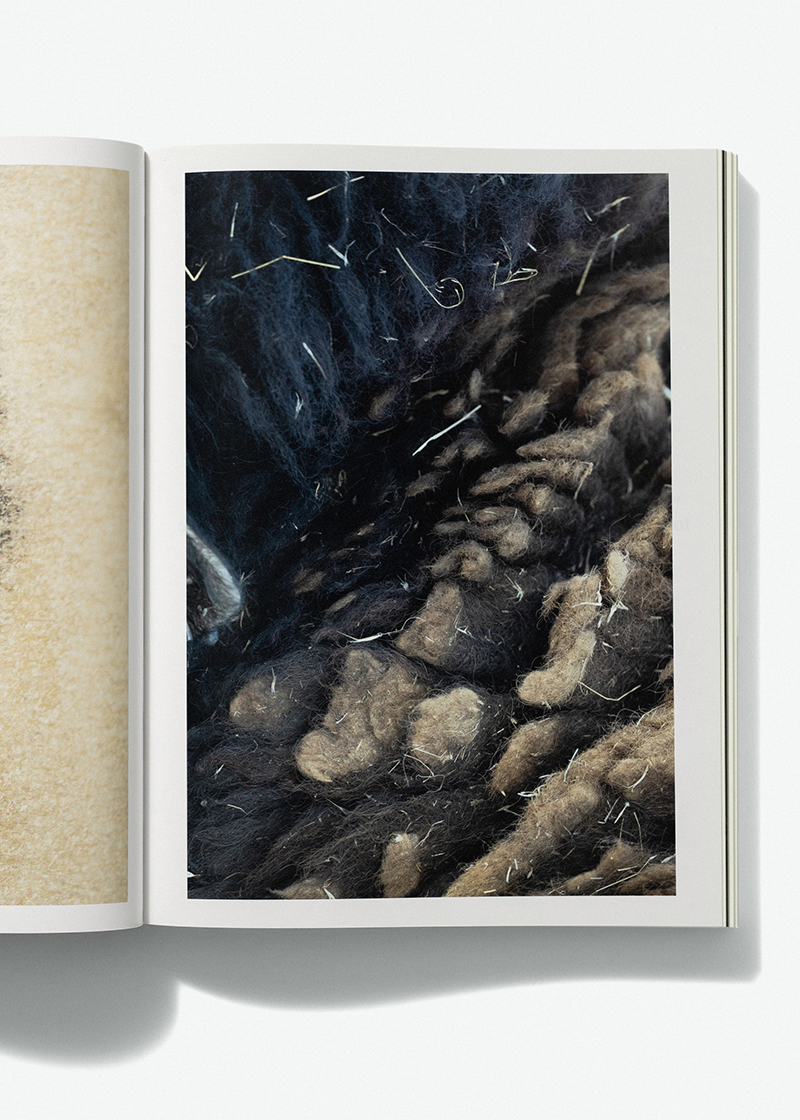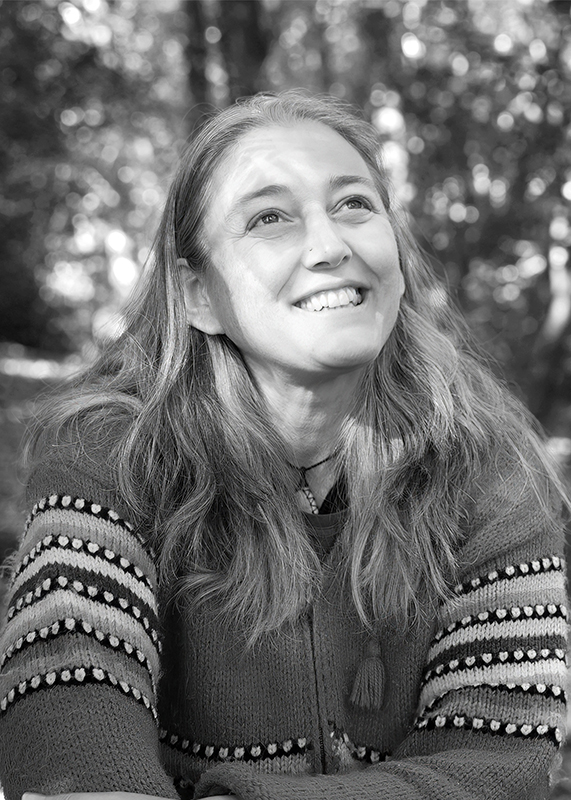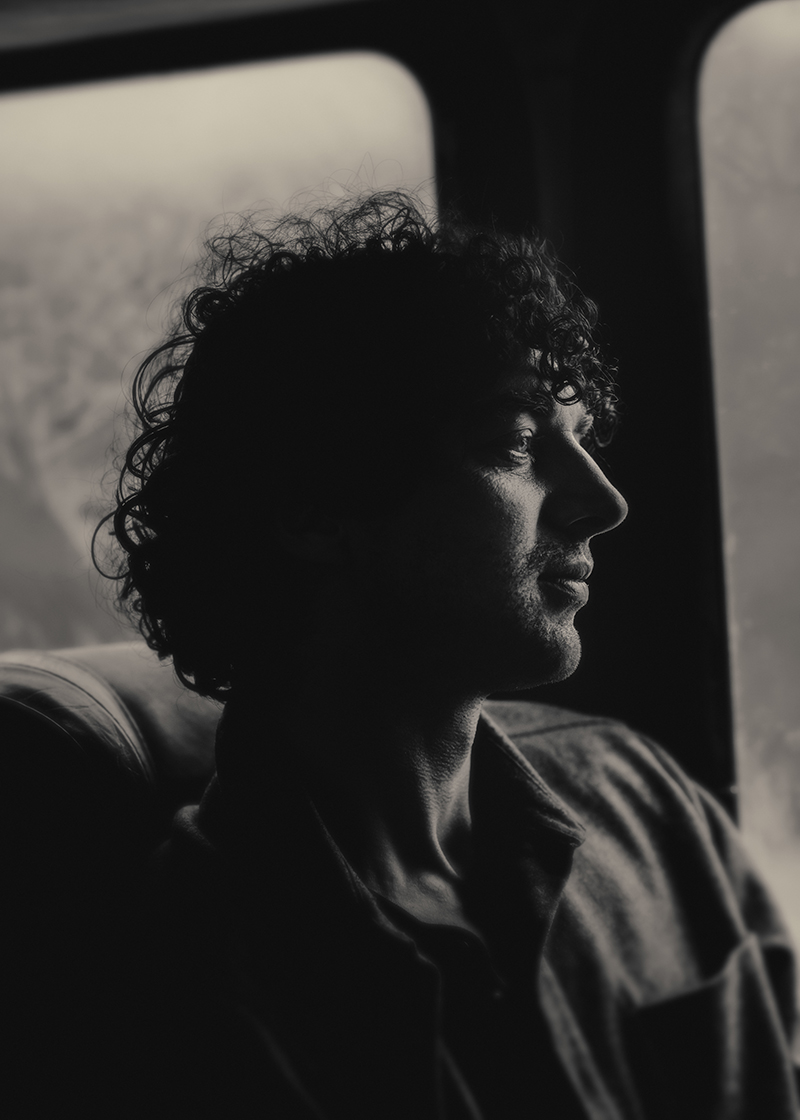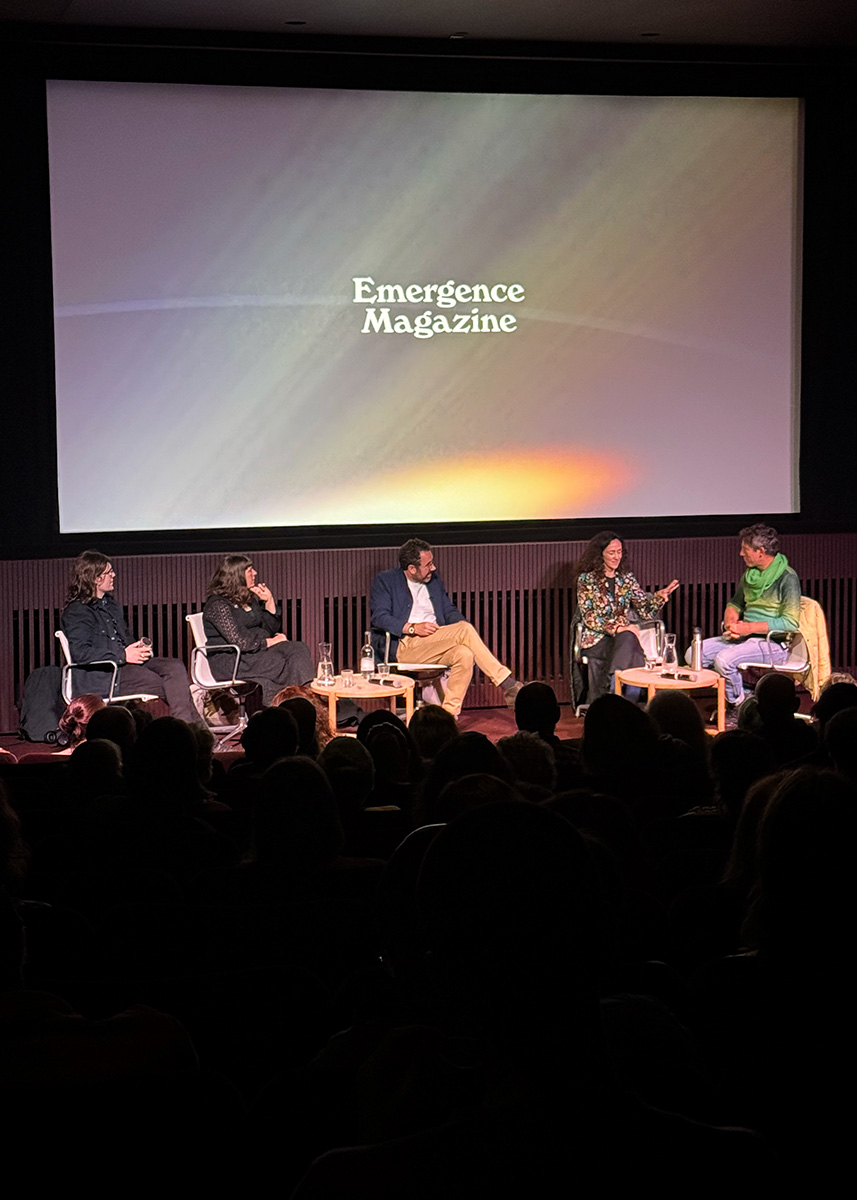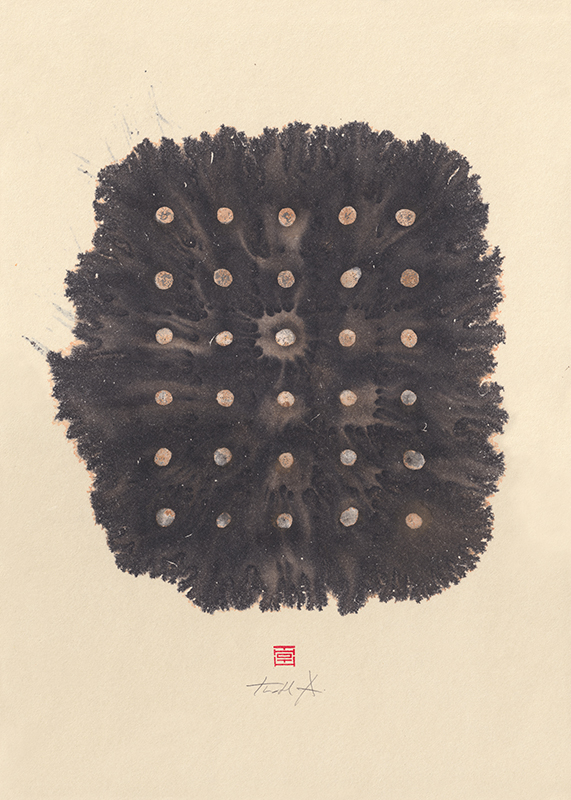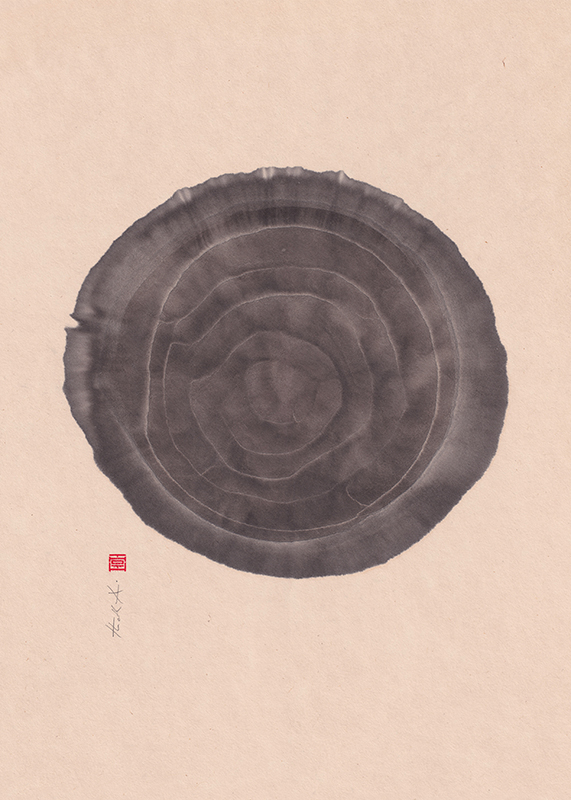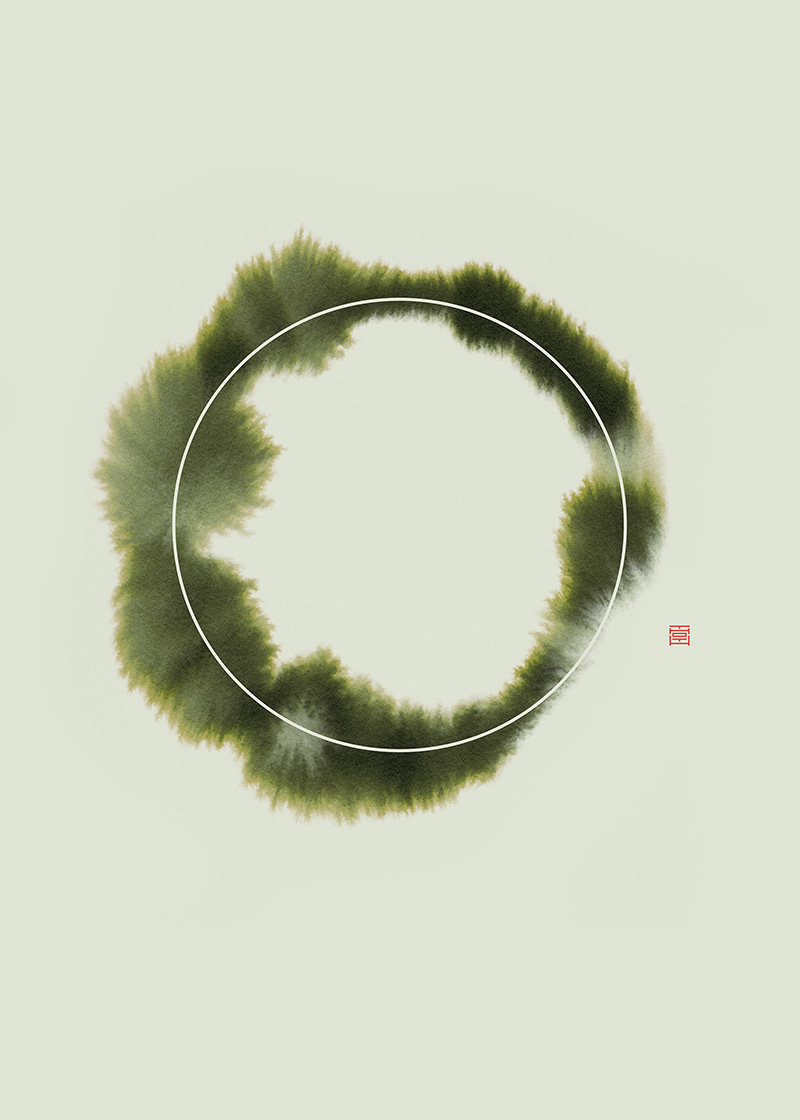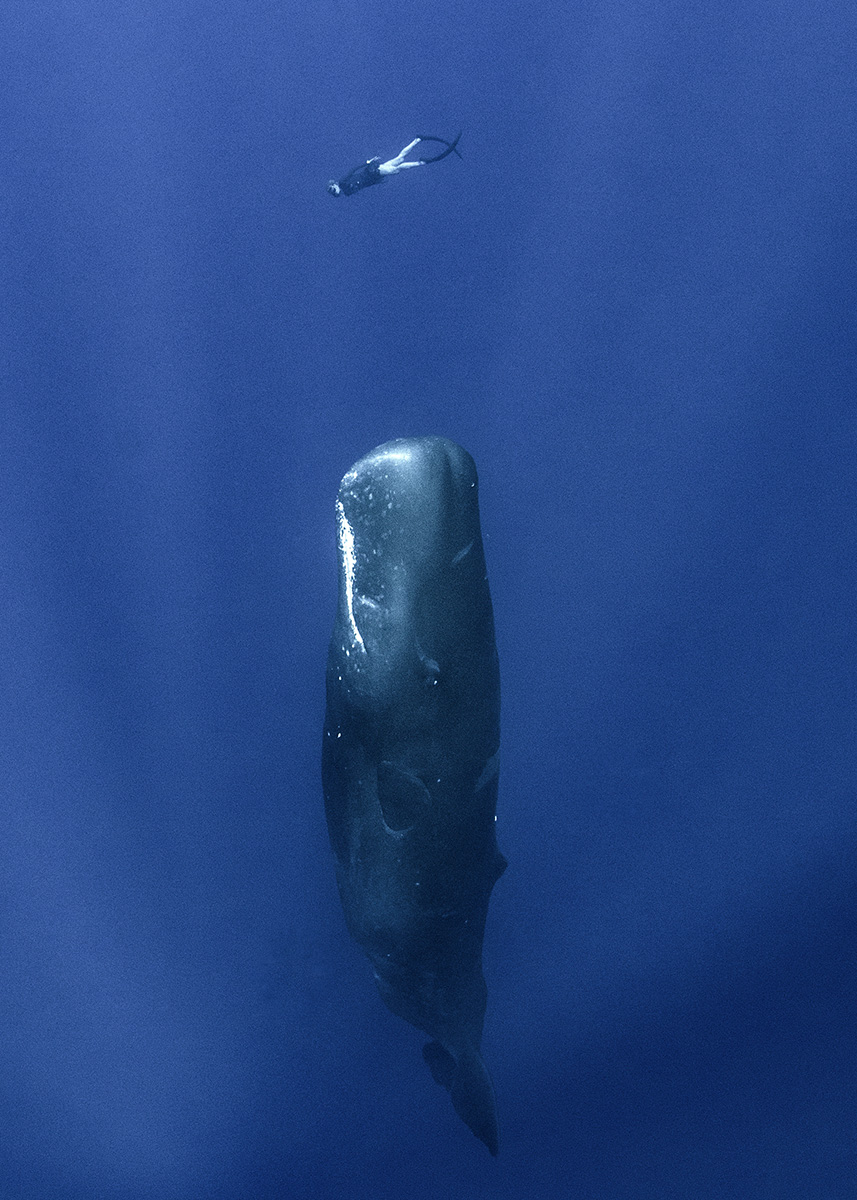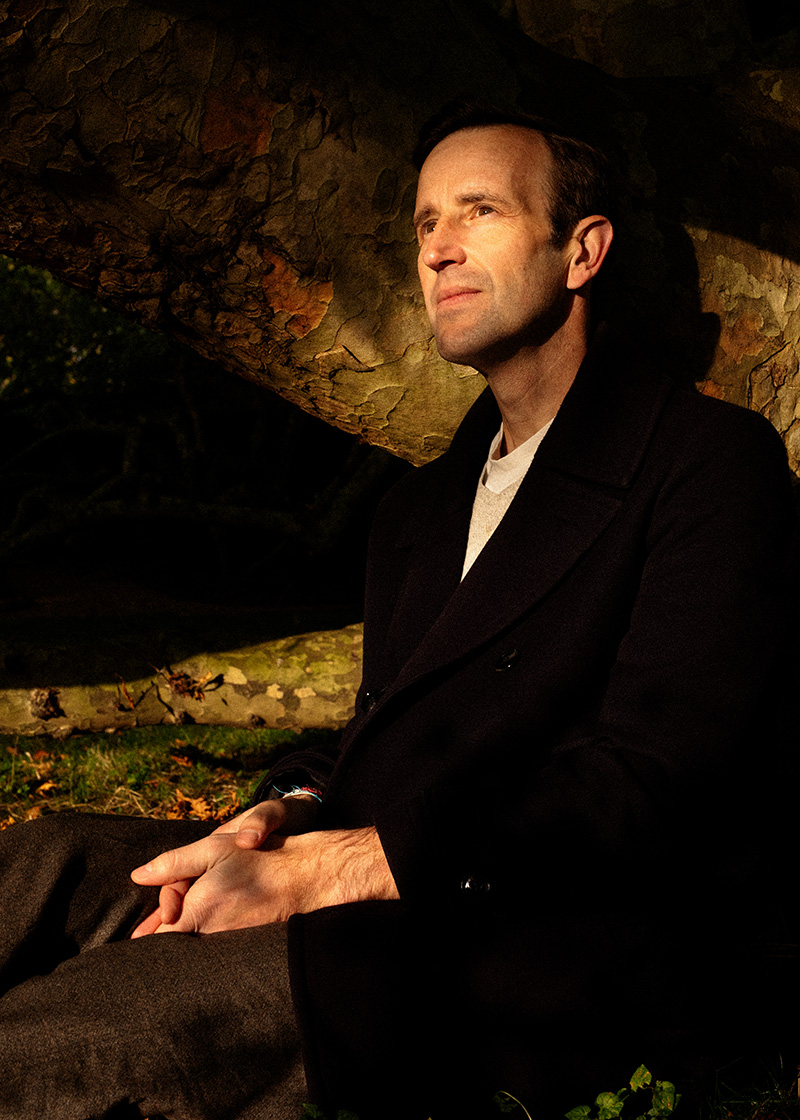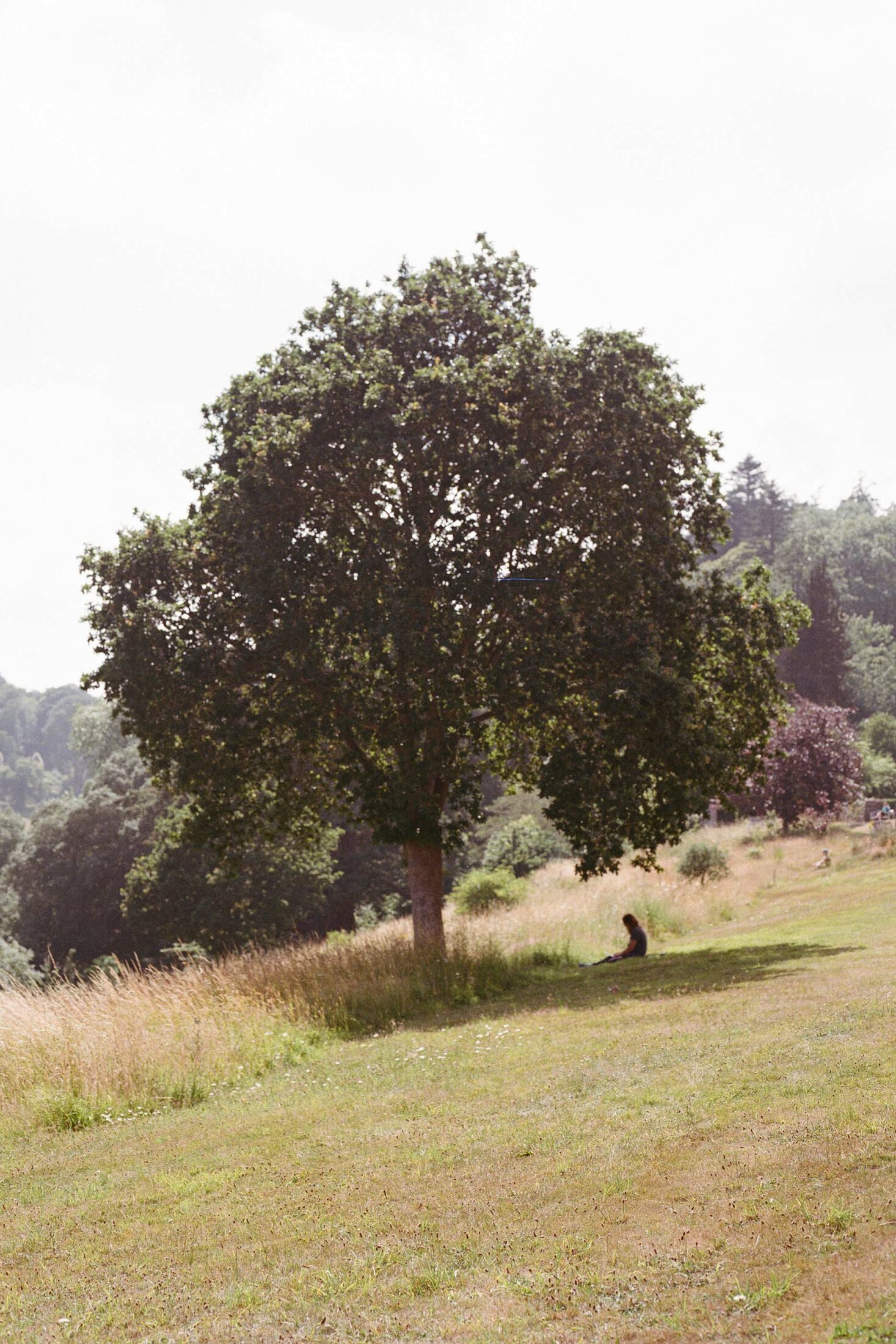
Enraptured with Earth
Emmanuel Vaughan-Lee is an author, Emmy- and Peabody Award–nominated filmmaker, and a Sufi teacher. He has directed more than twenty documentary films, including Taste of the Land, The Last Ice Age, Aloha Āina, The Nightingale’s Song, Earthrise, Sanctuaries of Silence, and Elemental, among others. His films have been screened at New York Film Festival, Tribeca Film Festival, SXSW, and Hot Docs, exhibited at the Smithsonian Museum and London’s Barbican, and featured on PBS POV, National Geographic, The New Yorker, and The New York Times Op-Docs. His new book, Remembering Earth: A Spiritual Ecology, is forthcoming from Shambhala in summer 2026. He is the founder, podcast host, and executive editor of Emergence Magazine.
At our Shifting Landscapes retreat held at Sharpham Trust in Devon last summer, Emmanuel Vaughan-Lee gave two talks inviting us to fall in love with the Earth again. Feeling strongly that in this time of ecological unraveling the Earth is asking us to return Her ever-present gaze with our tenderness and care, Emmanuel asks how we can expand our love to embrace Her in every moment, in every landscape?
Transcript
Part 1
Yesterday afternoon, at the end of the discussion groups that we all were in, the facilitator of the group that I had joined halfway through asked everyone to share what they were grateful for, what they were full of praise for. And the last person to share, she said, “I have praise for the fact that the Earth, the great seductress that She is, will eventually lure everyone in.” And she had faith that eventually She would lure everyone in. And she spoke a little bit about her own self—being from an urban environment and with no background directly of being in relationship to the land, but that it didn’t matter, because once the Earth began that process of seduction, she was enraptured.
And that stayed with me yesterday afternoon and last night and this morning, because this morning I wanted to talk about love. Give a Sufi a couple of days, all they’re going to want to do is end up talking about love. [laughter] We know three things. We know how to cry, because of this pain of longing and the love we feel when we are not with our Beloved. We know how to laugh for self-preservation. And we know how to love, we try to love. For me the Beloved is the great Earth. It is what surrounds Her, is what fills Her. And for me what fills Her is love. And I was very moved by this notion: give the Earth enough time, She will seduce anyone, because She is this great seductress.
And part of the work I spoke about on Thursday, and what we’ve been exploring, is how we create space inside of ourselves to be open to these powers of seduction. To open ourselves; to remind ourselves that there is this great being who has more eyes than can ever be counted looking upon you; to remind ourselves of this love that is looking down, looking up, looking side to side, hoping that you will catch its gaze. To be open to that, to be vulnerable, to step into that space of the unknown, away from the security of our conditioning—our own personal conditioning, our familial conditioning, our cultural conditioning, our collective conditioning. To step away from that and allow ourselves to look towards this great and rapturous gaze of love. And that is the work, that is the beginning of the work: to allow ourselves to step into this space, to begin to experience that all-embracing feeling that is always present all around us—if we dare to look, if we dare to open our eyes and open our ears and allow the pores of our very bodies to feel that presence, seeping in, breathing in and out, just like we breathe in and out.
But once that gaze has become fixed upon you, and you have gazed back, then I feel a different journey begins, a different dance begins, where one is in a relationship, the beginnings of a relationship at least. And for the Sufi it’s always with the Beloved. And so the only way to be with the Beloved is to be a lover, to be a lover. And what I feel very deeply is that at this time we are being asked to remember what it means to be a lover, a lover of this indescribable great, great, great being that encompasses all of us. Remember how to be a lover. There are so many things that are asked of us, if we are to be a lover—a good lover, not a lazy lover, not a selfish lover, not a lover on a Wednesday, but a lover every day. How do we be a lover every day, every moment, responding to Her whims? Because they are ever-changing. What do we need to be a good lover? To me that is the work. It is not that finding that space of connection is always easy, because it isn’t, in an era of forgetfulness, where our gaze is only on our own selves—the human, always at the center. Mirrors all around us; we build cities of mirrors, societies of mirrors, only facing inward. The gaze of our own selves.
That’s why I was so touched when I learned of Sam [Lee’s] work, because it was this simple, simple way of wanting to make you a lover, so that you could hear the song of the nightingale as he tries to entice his lover to sing all night. This tiny bird, this tiny brown bird sings all night at the top of his lungs to call out to his lover. And if we lie in a field with our ears open and our hearts open, and we hear the sound of this lover singing, it opens our heart and we want to become a lover too. We are enchanted, those moments are precious, but they are all around us. Wind through the trees is the sound of a lover, the breath of a lover. Just like when you feel the breath of your lover on your neck, you feel that attention, you feel that intimacy, you feel that yearning, you feel that longing, you feel that love, you feel that passion, you feel that intimacy. It’s all there in the breath. It’s like it is all there when the wind moves through branches of that tree or the meadow beneath it. But it takes time, it takes attention, it takes dedication to remind ourselves how to be a lover when that lover does not take the form of a human being—so used are we to a limited understanding of love.
We are being asked to expand our understanding of love, our notion of love, our notion of intimacy. Why deny ourselves the possibilities of the infinite nature of intimacy by limiting it only to the human experience of a lover’s touch; no matter how great that lover’s touch, it is only one set of hands. And She has more hands than we can ever count, just like She has more eyes than we can ever see, or more ears than we can ever hear with. So to me, that is the work: stepping into that space of learning how to be a lover.
What are the qualities that we need? Simple, simple practices, like those we tried yesterday together, are gateways for me. We can walk in a landscape, we can walk down a path, or we can dance in celebration. And of course that dance does not have to take the form of a physical expression; it is an inward attention. When you walk with remembrance of how and who you are and what you are doing with whom. How would you walk across a lover’s back? How would you breathe in the face of a lover? With tenderness—one would hope—with tenderness. Because there needs to be a softness present. It’s like through the incredible harshness of the realities that we are facing, through this grief that we feel, and the pain and the cry of the Earth that we hear, there is a softness that is being awoken, that is being shown to us; a tenderness, a vulnerability. Because to be tender, to be open in the way that She is asking, the Beloved is asking, her lovers to be—it is so vulnerable, it is so open. It is very humbling, I find, to place yourself in that openness, in that space of vulnerability and tenderness. Because to be tender, one has to be tender. To be tender, one has to be tender. One cannot hide. One has to eventually show everything about oneself. Otherwise, you are hiding behind walls, behind veils of separation. To be truly tender, to be truly present, to be truly attentive, we have to show ourselves. And She is asking that: for us to show ourselves. Because what is the point if one has caught Her gaze but then looks back with eyes that aren’t real, looks back under the veil of protection and conditioning, rather than the openness and tenderness and frailty of our own real nature, as wounded as it may be. And there is, I think, a deep wisdom present in the fact that it is Her woundedness that reveals the need for us to step into Her light holding our woundedness—with open hands and open arms towards Her.
There is so much I feel we can learn at this time about the importance of these fundamental human ways of being that are not only fundamental human ways of being. We are being taught how to be human so that we can learn not to be human. They go hand in hand; to me that is part of the mystery, part of the secret.
There is a quote from Thich Nhat Hanh, who I imagine many of you know very well: “You are present in every cell of my body. My physical body is your physical body, and just as the sun and stars are present in you, they are also present in me. You are not outside of me and I am not outside of you. You are more than just my environment. You are nothing less than myself.” Very, very, very profound. Because the journey of lover and beloved, where does it lead us? To a state of separation? No. Because when lovers are together, and lovers are together embracing their tenderness and their vulnerability and their openness and their frailty, they become as one. There is union. That is the draw of a lover. The taste of that—that’s what we all want, what we all want. If you’ve tasted that, you want to taste it again, and you want to taste it again—because it is real.
And this dance that She is leading us in, it is like a spiral that takes you closer and closer to Her and closer and closer to ourselves. That is the dance. Because once one has made that step and realized that separation is purely an illusion and that union is the state in which the world really functions, then one brings a level of consciousness and awareness to the true nature of reality and Her presence here. And that, of course, is a long journey one goes on. But to me, it’s a worthwhile one. To me, it’s the only one that is worthwhile. Because if She is in every cell of your body, if She is in every atom inside of you, every particle, every vessel of blood, you embody a relationship which respects the true nature of creation. To me that is the real acknowledgment and all other acknowledgments that we strive to embody and practice through our breath, through our step, through the myriad ways we can give praise—they are all leading towards the ultimate acknowledgment, which is of recognition of union: that She is as alive in the very center of my being as She is in the treetops as they dance in the wind.
But one needs patience for this journey. One needs attentiveness. One needs humility. One needs compassion, generosity. All the values that have merit, all the qualities that are worth striving towards, have to be embodied. To me, that is also part of the learning She teaches us through this dance. We have to earn it. Her gaze is everywhere. It’s always present, but to truly understand what it means—we have to earn that. We can taste it from time to time to keep us attentive, yes. But, to drink and drink and drink till one is full, and realize that one can never be full enough—that is the work. And in that lies this power of reflection.
Because as you step into this space of intimacy and attention and tenderness of relating to Her as a lover, you reflect a quality of Her nature back into creation, back into the world. It’s a different set of mirrors than the set of mirrors that we’ve built around ourselves. A different set of mirrors, a different way of working with light. Our remembrance of Her reflects remembrance into a space of forgetfulness. This is the power of a human being, when we are not only centered on being a human being, as we become a space of reflection, a conduit of light, a vessel for a story, and so much more. And that is also the work—to recognize the importance and power and potency of that reflection in an era of forgetfulness. And that it is a privilege to have felt Her gaze and a responsibility to return it.
And while one can feel the great benefits of Her gaze and the embrace of that love and the beauty and the rapture and the terror and the awe and the majesty, and all the qualities that are exhibited as She twirls and twirls and twirls like a dancer, it is a great responsibility, a great responsibility, to not make that gaze about only our own well-being, but to always hold it within a larger container, a larger understanding, which says it is not about us. Because if you are present in every cell of my body, if my physical body is your physical body, then how can it be only about us? And there are so many layers of learning and so many layers of love that are being woven together. But She offers again and again and again. Because She has patience. She will eventually ensnare us all.
And on Thursday I spoke of this process that we are in collectively and that we can participate in collectively, of this accepting of the time that we are in and the space of witnessing that we must find ways to be in, ways to witness; how that leads us to grief and, of course, to love and acknowledgment as an expression of that love. But that journey is not a linear one only. It is circular. Because love, if one really practices love—because you have been enraptured by Her gaze and you are more open to grief, you are more open to feeling what She feels—it is of utmost importance that we do not romanticize, contextualize, minimize, try to in any way see only one side of Her, but to see all these sides as they unfold. Because just as this breeze can show a quality of light, if we look elsewhere, we see a quality of darkness.
It is not linear, this journey; it is circular. She is circular. We are linear. This time. Because we’ve forgotten the true nature of the patterns in which we flow. The rhythms that She embodies—they must be returned to, they must be remembered. All of these layers, all of these layers of love. Because one’s relationship to witnessing, one’s relationship to grief, and one’s relationship to love, and one’s relationship to praise—they are always moving in a circle, inviting you to step ever deeper, always ever deeper. And even when one has returned to that space where one can feel that every cell that is in one’s body is not only your cell, but is Her cell, one can go ever deeper still, because it is limitless; because She is limitless. And in truth, we are limitless, because our hearts are limitless. There are gateways of connection between this world and every other world in existence, if we allow ourselves to remember it. And She is trying to teach us to remember that; teach us what was before we forgot. And in our hubris we have forgotten so much. Just as children do, we forget—as a culture we have forgotten that She is there, always. Waiting. Giving. Even in this time when we have mistreated Her to such a degree, She gives, She gives, She gives. She gives you opportunity after opportunity to remember who She is and what She offers, even in the space of such pain, such disrespect. What does that say about us, how little we are? That She gives regardless, because it is Her nature. Because how can She not?
And just as we must develop these qualities when Her gaze has opened our hearts, we must tend the love that has been opened in us. Tend it. That is also the work: tending. We become tender so we can learn to tend. Both Her and the love that She has ignited inside of our very hearts. And tending is something we must attend to each day, each moment, each breath, if you will, can be an opportunity to tend, to tend to that love that has been opened in our hearts from Her gaze. So that each breath is not a wasted breath; each breath is a breath of remembrance, of Her glory, of Her greatness, of Her giving. And each breath brings us closer. So many ways to tend, to let that flame grow and grow and grow, until we will never forget again. Because it is a fire that is burning in the depths of our hearts; and as this fire is tended, and as we are tenderized and we are broken open by this love, we are more able to hear the language in which She speaks and the ways in which She invites us to be with Her. The doorways to kinship swing open, and the wind through the trees speaks different words to us, different songs to us. A language that has long been forgotten is again understood, and the only way we can learn this language is through this attention. Attention to Her and the space that She has ignited in the depth of our hearts; the space that is as much Hers as it is ours, as much Hers as it is ours.
So, maybe when this is all over, when we’re long and dead, it will be inside of more than just a few of us—a voice, a language, a presence, will have grown from a seed that was held in our hearts into a great forest. To me that is also the work. Where is this going? What is our role? Why should we do this? Not for ourselves, always for Her, and for where this journey can lead us. By us, I do not mean ourselves.
But it is hard. It is so hard to do this work. Even when you want it, even when you want it so bad; even when you’ve been bewitched and seduced and felt the tenderness of Her kiss. We are such lazy creatures, forgetful beasts. She has to embrace us again and again and again and again and again. And She has such patience, because we turn away again and again and again and again. She has such patience; something we must learn. So we must try. We must give it the attention it deserves. We must make it part of our lives. What we think about when we wake up in the morning, what we think about when we go to bed, what we dream about. It must become, again, part of ourselves in a way it once was. So we no longer have to use words to describe something that is. And instead just understand it. Because it is a way of being. Just as She is a way of being.
“You are present in every cell of my body. My physical body is your physical body, and just as the sun and stars are present in you, they are also present in me. You are not outside of me and I am not outside of you. You are more than just my environment. You are nothing less than myself.”
Part 2
I want to open this last talk of our time together with a stanza from a poem by the Diné poet Natalie Diaz: “The First Water is the Body.” And she writes, “We must go beyond beyond to a place where we have never been the center, where there is no center—beyond, toward what does not need us yet makes us.” Beyond, toward what does need us yet makes us. And of course that is what we’ve been talking about since we have been together. We must go beyond beyond to a place where we have never been the center. Where the human steps out of the center and invites—demands, really, that all the other voices that have been silenced for far too long retain the space they should have. Because none of those voices are the center—they know better. They don’t claim a place and say, “This is all mine.”
But I actually wanted to share this quote in the context of where we go from here, where you go from here—back to London, or New York, or Berlin, or perhaps a cottage around the corner—and the danger of creating constraints and limitations in how we want to live our relationship with this great seductress we spoke of yesterday. The danger of creating constraints and limitations. In a space like this there is the sound of the trees that drown out the sounds of the cars. We don’t hear airplanes overhead. You see flocks of birds at dawn. A space like this takes us in. It envelops us. It is intoxicating. This is how it once was everywhere. But the danger is that we romanticize this, and we say, Here I can hear Her voice. I can see Her. I can be with Her. It is quiet. I can feel into this space in a way that I can’t in my busy life with the noise from the city streets penetrating the windows as we look at our screens and decide—or are decided for by the algorithms around us—what we will do that day. But I think there’s a real hubris at the heart of feeling that in a space like this, and spaces like this, we can hear Her, we can be with Her, we can be nourished and try to nourish Her in response, but that in our own busy lives it’s harder because it’s not green enough. Because there aren’t enough trees. There’s too much noise. There’s too many people. And while I understand, of course, in a space like this where one can drink and drink and drink because there is so much given, it can feel like here I can be in a space of remembrance, here I can be as I once was, surrounded by friends, brethren, who share a similar notion. There is a reflection, there is nourishment in that. And that is why we come together: the value of community, the value of these spaces, the nonhuman spaces and the human spaces that remind us, support us. But to say it is here that I can be in that space more easily, you already put a constraint on the possibilities that are available to you in every aspect of your lives. If She is everywhere, including within, then to put a constraint on how one is able to relate, or perceive, or be in relationship, is, to me, an insult. And what does it do? It puts the human back at the center: I can be in relationship to you when I feel you all around me. But when it is a little harder, because of what I have done, then it’s not something I can really step into. That is hubris.
And there is a real power, I think, in what we are being forced to do when we have to enter spaces where She is not as abundant as She should be, because that forces us to be attentive in the way that Her gaze that captured us is asking us to be attentive. Not only when it is so obvious, but when it is perhaps more hidden. But in truth, how hidden is the sky? How hidden is the sky? How hidden is the sun? How hidden is the moon? And yet, instead of recognizing the grandeur of what that offers in every waking moment of our lives, we say what is not there. Then we make it about us. We make it about us and we bring ourselves back to the center. And She is trying to remind us we are not at the center. There is no center, at least not in the way that we understand. And if we go from here with our cup full, our hearts nourished, the conversation still ringing in our ears, let that be fuel, not to get you to the next time we gather in community in a space where the reflection is so bright one cannot ignore it, but let it be fuel to let one look where one has not focused one’s gaze—in the cracks in the sidewalk, in the bird’s nest that’s hidden in the tree behind the lamp post. Do we want more trees? Do we want more green? Do we want more abundance? Do we want more biodiversity? Yes, yes, yes, yes, of course! I am not saying that. But I am saying as we make this journey to try to unravel this web of forgetfulness that we have become encased in, cocooned in, let us remember every opportunity that is around us to be in relationship with Her; the ones that we don’t think of as special.
It’s easy to say a beautiful moonrise, a beautiful sunrise, a grand, soft Devonian hillside is embracing you, yes. But what about that moment when you walk from your door to the tube station? You pass as much wonder as you do on this hillside. And there’s a great lesson in that because we have to both be confronted with what we have done and find our way out of that, holding what you might call a paradox. We have to be confronted with our complicity. Yet in that is just as potent a reminder as a space like this. Perhaps we have to look in a different way, as if we are looking through a magnifying glass.
In the discussion group yesterday, someone spoke of the experience of going around their block with their children, young toddlers. That block would take an hour to walk, and [they described] how now they had seen the space around the neighborhood with different eyes, childlike eyes. They could see the magic of a flower, of a tree, in a new way. And what was once a limitation, a constraint, a concretized space—human beings creating a built environment that imposes on a natural one—becomes a space where Her presence is felt. And yes, eventually we all hope we come to a place where our built environment, the worlds we create, are done based on these values that we have been speaking of; where cities are not spaces that were designed to stamp Her out, but to let Her shine, like old Babylon. We want that, but we can learn something here. But it’s work. This is what I was speaking of yesterday: it is work. There is a demand that is placed upon us. A demand that is placed upon us to be attentive, to not sculpt Her in a way that suits us, to be attentive and let Her presence in all the forms, myriad forms, be seen, be seen, be seen.
And in some ways this constraint, this limitation, just like any constraint and limitation, can be a vehicle of transformation. If we have no constraints, we usually become a bit lazy, a bit greedy. But to have to learn to be attentive, to see Her in a space where one has to look harder—it becomes this vessel and we seek Her out. And that is of utmost importance, to seek Her out and be grateful when we see Her. To be grateful for Her in absence and in presence, not just in the presence we perceive. Because it is through the process where one has to look harder into what can seem like an empty space—a barren space, a concrete jungle, a busy mind—it is in that space that we can see Her in a new way.
There must be longing in this somewhere. When our cup runneth over, the bounty, we are full. But then when we feel Her less, we yearn for Her. We long for Her. And what does that longing and yearning do? It makes us want Her more. It makes us more attentive, more focused, more determined not to be controlled by our humancentric paradigms, our humancentric needs. And when we are with Her in a space of abundance, this experience of going from abundance to scarcity and longing, it puts one in a different frame of being with Her, because this process begins to remove the human from the center. Then, when you are with Her, you are with Her in a different way. You are not projecting your own image upon Her as you walk amongst Her. Things shift because there has been a constraint, a limitation, that begins to churn you, to turn you through this yearning, through this longing, through this attentiveness that is asked. It shifts you from the center, it spins you away from being at the center. And then you stand off to the side in awe, not asking for Her to make you feel better. Just asking for Her to look at you, to be with you—not on your terms, Her terms, Her time, Her place, Her everything. But it requires this daily attention to not fall into the space of forgetfulness or resentfulness: Why do I live here? I want to live there; it’ll be easier there. No. It makes it about you: I need to move here. I need to have this set of conditions in order to be open to Her. I’m not saying one should find the harshest environment possible to test this theory. [laughter] I think we have enough well-built cages to go home to; we can test the theory there. But it’s so important we don’t idealize or romanticize, Oh, it was so wonderful this weekend in Devon, the sun was shining, the moon was rising. Yes. And let that be for what it is: an opportunity to be nourished by that bounty. Hold it as a memory, but don’t hold it up so that it drowns out, shades out, all the other opportunities that we have to be in a space of remembrance and attentiveness to the ways that She is around us.
If you have no eyes to perceive Her beauty, does that mean you cannot feel Her beauty? No. You sense it. If you have no ears to perceive Her beauty, does that mean you do not hear it? No. You feel it. Just as each breath is an opportunity to recenter ourselves in the rhythms of creation, Her rhythms, each breath is an opportunity to be in this space of relationship. Even stuck in an elevator on the 47th floor of a skyscraper in Manhattan—it doesn’t matter what the circumstances are. If one says, “I cannot be with Her there,” then you make it about you, and then the lesson She is teaching can only go so far. Because if this becomes the center: the recognition that She is everywhere and nowhere, above and below—if that becomes the core of our being, then everything in our lives eventually bows down to that, is built upon that, in our own personal lives and, one hopes eventually, as our systems realign to that space of understanding that She is everywhere. It shifts your perception. It changes your whole life, if you let it.
And as Thich Nhat Hanh said, She is in every cell of your being. One must learn to turn one’s gaze towards oneself without making it about oneself. So many levels, so many layers to the circle that She is teaching us. “We must go beyond beyond to a place where we have never been the center, where there is no center—beyond, towards what does not need us yet makes us.” She makes us. She is us. And She doesn’t need us, but we need Her. She needs us to acknowledge Her, to remember Her, to recognize Her, to see Her, to smell Her, to touch Her, to feel Her when we are asleep, to have Her be the first thought when we wake and the last before we sleep. But She exists outside of our understanding of what need is. She is so much greater than that. So much greater. And every time we try to define Her, we limit Her. We limit Her. And even in the barren wasteland of our destruction, She is present. She is present in the ash of the trees that have burned in the fires, and the bodies of the birds that have died in the fires. She is present there. And we have to look there as well. She is present in the concrete that we walk on in the city. She is present not just in the trees and the green leaves and the flowers and the bees. She is present in the rocks and the sand and everything that we have ever made. Even if we have twisted it and twisted it, She is there, everywhere. We cannot escape Her and we can also not limit Her, and that is part of the lesson that She is trying to teach us. We spoke of grief, we spoke of witnessing, we spoke of turning away, we spoke of love and acknowledgment. All of those things are important, but what is more important is not making any of those steps about us. One has to hold Her first and foremost, witnessing for Her sake, grieving for Her sake, loving for Her sake, so that She will reveal the love inside of us that is Her. And we have to find the myriad ways each of us can honor and acknowledge and praise Her, and not make it about ourselves. And if we really live this way, or try to, we begin to see how much we do not see. It’s like our eyesight gets sharper, our hearing gets sharper, our senses awaken. The unknown becomes known because we have made a choice that we will not limit the ways in which we can perceive, experience, and ultimately praise. And then it is as if a veil of separation has been lifted, and a new level of Her beauty, of Her presence, of Her power, of Her majesty, of Her rage, is revealed. As long as we don’t make it about us, beyond to a place where we have never been the center.
